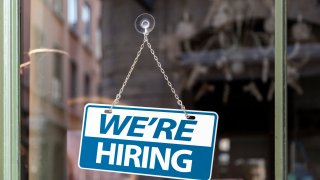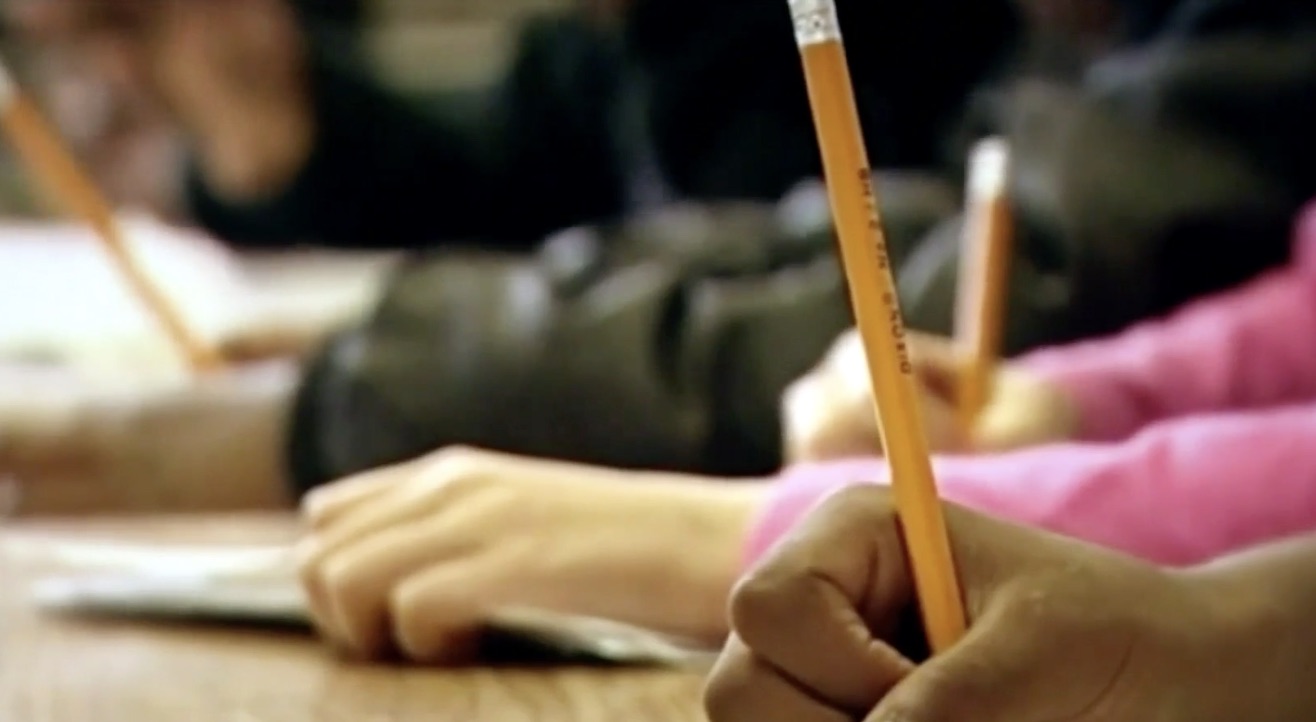
October is Disability Employment Awareness Month in Connecticut. We’re joined by David Doukas, Director of the CT Bureau of Rehabilitation Services, to hear about the services available to help people with disabilities find and keep a job.
Mike Hydeck: October is National Disability Employment Awareness Month. It's a time not only to highlight the businesses that are inclusive when it comes to hiring, but it's also many families not knowing services the State of Connecticut actually provides for both the employee and the employer. Joining me now is Dave Doukas, the director of the Connecticut Bureau of Rehabilitation Services. Dave, welcome to Face the Facts, it's good to see you. We appreciate it. So for, let's talk about this program. Many people might not know about it, families, if they have a child or a teen or an adult with special needs, what kind of jobs are a part of this program? What kind of services can you receive from your department?
David Doukas: Sure. Well, the public Vocational Rehabilitation Program is the oldest existing federal program United States. Makes it hard to believe. Yes, we were around even before Social Security. We exist in all states and United States territories, and really are a $4.5 billion program nationwide. Our mission is to help people with disabilities to prepare for and to maintain competitive, integrated employment.
Mike Hydeck: So we want to go to a job, keep that job?
Get top local stories in Connecticut delivered to you every morning. Sign up for NBC Connecticut's News Headlines newsletter.
David Doukas: Yes, absolutely.
Mike Hydeck: So what kind of job? So I know you have a training center. This is a program that works in the schools as well. What kind of, so are we talking about a coffee shop? An auto mechanic? What are they? How do they all fall?
David Doukas: We help people from every walk of life. We help people who may have had six plus figure incomes, who acquire a disability and need help either maintaining their job or retraining for something different, all the way through kids who are involved in schools, who are under individualized employment plans, and we're helping coordinate their transition from school to work.
Face the Facts
Face the Facts with NBC Connecticut goes beyond the headlines, asking newsmakers the tough questions, giving an in-depth analysis of the big stories.
Mike Hydeck: So let's go from ground zero. Let's do a case in point. Say, my 16-year-old cousin has mobility issues, has some cognitive concerns. Where does he go to start getting help? Does he pick up the phone? Does he call you guys? Is there a way to get on the internet and find out more information and make a contact? How did the first point of contact happen?
David Doukas: Well, it can happen through a variety of different ways. Any treating sources that he might be involved with may be able to make a referral directly to us. Typically, we would hope that the school themselves would recognize that the student is either underneath the section 504 plan or under an IEP, know, the voc rehab counselor assigned to their school, and be able to make a connection that way.
Mike Hydeck: So there is a counselor assigned to schools to deal with this, right? So you could reach out to maybe your guidance counselor and say, 'Hey, do we have a counselor that's connected to rehabilitation services?'
David Doukas: Yes, school transition coordinators, special educators. You know different guidance counselors in school. Every school is a little bit different, so our relationships vary with each of them, but we do have a counselor assigned to every school in Connecticut.
Mike Hydeck: So if they're not attending school, say they have issues and they're being home schooled. How do they start?
David Doukas: You can pick up the phone, call. We have a 1-800 number. You could look us up at Disability Works CT, and be able to make a connection directly through us, via that.
Mike Hydeck: So it could be a phone, could be a website. Okay. So if an employer is considering hiring somebody from this program, or wants to make contact with your agency, say, 'Look, we have some opportunities here.' How do they do that, and how do they make sure it's a good fit? I'm an employer. I want to employ people. I still have to keep the business open. How do you find that relationship?
David Doukas: Oh, absolutely. I think it's important to know that employers are a dual customer of our program. So we're looking to help businesses and employers just as much as we're looking to help the consumers that we serve. We offer disability awareness training. We can provide advice on ADA accommodations. We take a serious amount of responsibility in making sure that we're making good job matches. We're invested in the long term success of our consumers. We're not just looking to have somebody get a job and say, 'Hey, we're done with them.' We want to make sure that they're in the right place and they have an opportunity to maximize their potential and grow in their career.
Mike Hydeck: So I own a pizza place, I want to bring an employee in and I say, 'this is the job I think is going to be a good fit for them.' Do you come in and assess it to see if it is a good fit for them? Is that how it works?
David Doukas: Yeah, we have a lot of tools at our disposal to be able to try someone out in a job. First thing that you should know is that our counselors work with these individuals. We determine their eligibility for the program, which really works through understanding what their limitations are. Then we work to build an individualized employment plan with them.
Mike Hydeck: So if they have a right arm that doesn't work really well, there's an opportunity where you can either find them a job or have an adaptive piece of equipment. Or how would that work?
David Doukas: We're either looking to remediate the disability or kind of work around it through the through the abilities that the individual has. So creating a plan that says this is what's going to be necessary to work in in a pizza shop would be the first step we find a business that has a pizza shop opening, we can offer an employer an opportunity to try them out for 40 hours on the job, 80 hours on the job, see how well they perform, find out if there's any additional remediation that may be required for them to be successful. In the end, if the employer says, 'you know, I don't really think this is a good fit,' then we can say, 'Okay, thank you for allowing the opportunity. We're gonna take what we learned here, go back, revisit our plan, and move in a different direction.' If they do work out and are gonna require some additional support to be successful, we would arrange that.
Mike Hydeck: All right, got a little less than a minute. All nonprofits have been providing these services. They help you out, like Oak Hill helps you out. They are crying for more money right now. Is that an impact on your program at all? And do you see it changing in the next session?
David Doukas: Well, private nonprofits are a very important part of our service delivery model. We spend over 50 percent of our purchase services through these types of vendors, and they provide a lot of critical supports for for our individuals on the job.
Mike Hydeck: Dave, got to leave it there. Thanks so much. We appreciate your time this
David Doukas: Thank you, Mike.



